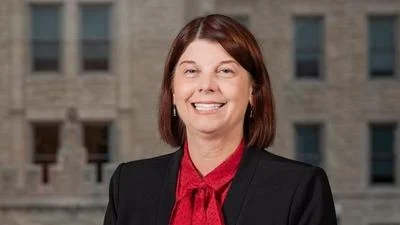State Representative Jeff Keicher (IL) | Representative Jeff Keicher (R) 70th District
State Representative Jeff Keicher (IL) | Representative Jeff Keicher (R) 70th District
Partisan working groups have become a favored form of policymaking for House Speaker Emanuel “Chris” Welch since he assumed his role as the presiding officer of the Illinois House of Representatives in 2021. These working groups appear to be a method to exclude Republicans and the public from the legislative process, potentially avoiding opposing viewpoints.
In contrast, Senate President Don Harmon has chosen to conduct public hearings within the committee framework outlined in the Illinois Constitution. This raises questions about Speaker Welch's intentions.
Senate President Harmon holds bipartisan public committee hearings on significant issues such as teacher shortages, public safety, immigration, and most recently, public transit. House Rule 13 grants Speaker Welch the authority to create bipartisan committees when necessary. However, he has opted for Democrat-only working groups behind closed doors on various topics:
- Firearm Safety and Reforms Working Group
- New Arrivals Working Group
- Mental Health Working Group
- Public Safety Working Group
- Public Transit Working Group
- Reproductive Health and Dobbs Decision Working Group
- Social Media and Online Extremism Working Group
- Teacher Shortage Working Group
The preference for one-party, closed-door working groups by Speaker Welch seems aimed at stifling debate, preventing controversial legislation from being vetted, and keeping the public uninformed.
Illinoisans deserve a transparent legislative body that adheres to its Constitutional duties. They also deserve a body that works within the committee process with public hearings held at accessible times and robust debate from both parties.
Senate President Harmon understands the importance of bringing together Democrats and Republicans. His bipartisan Senate Transportation Committee is addressing issues through statewide public hearings to gather information necessary for informed voting by all senators.
When announcing his "Transportation Working Group," Speaker Welch stated that members would "talk with stakeholders, review transportation proposals and create new solutions for public transit." However, it appears Republicans and possibly the public will not have an opportunity to contribute.
House Republicans aim to hold the majority accountable, highlight improprieties, and ensure that over four million Illinoisans they represent are included in processes affecting their lives. They urge Speaker Welch to allow full debate on important issues in committee settings.
Questions arise about why Speaker Welch avoids comprehensive hearings and testimony from all sides if Democrats already hold a supermajority capable of passing or rejecting any legislation. Shutting out opposing views perpetuates partisanship. Adhering to his initial promise of bipartisan cooperation could reverse this trend.
###




 Alerts Sign-up
Alerts Sign-up